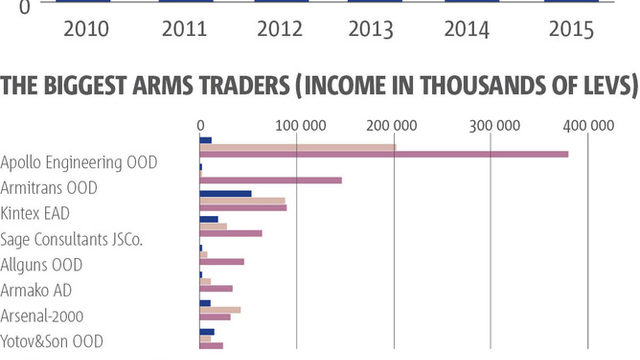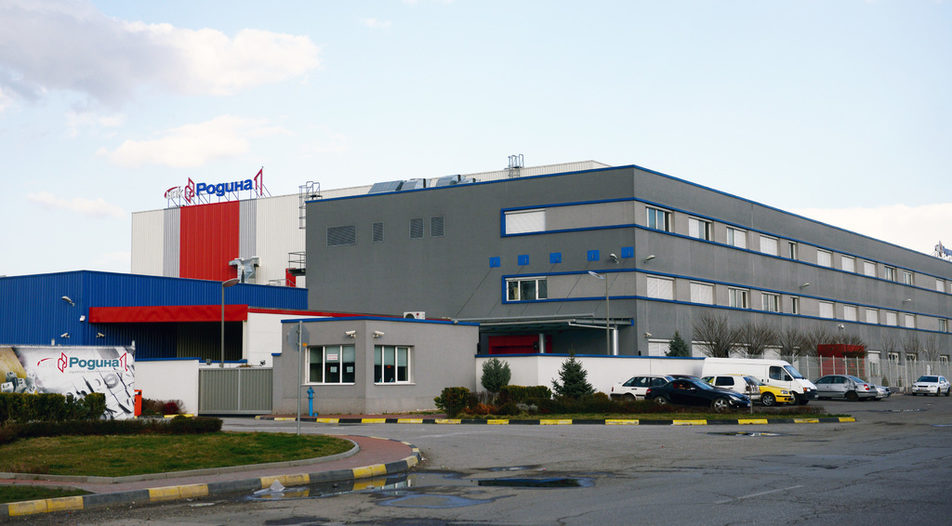Following the successful and widely acclaimed $263 mln acquisition of Bulgarian software company Telerik by the US-ba sed Progress Software in 2014, now it seems that the Bulgarian IT industry has started to provide such M&A success stories on a regular basis. In the last couple of months three companies found new foreign owners, though the investment was significantly lower.
UK-based market research agency Future Thinking acquired GemSeek Consulting, a Bulgarian data science and analytics market research business for an undisclosed price. The two companies had been working together for almost a year prior to the deal. GemSeek Consulting saw remarkable growth in recent years. Between 2013 and 2014 its revenue more than tripled and reached 3 mln euro. In 2014, GemSeek was distinguished as the most dynamic among small and mid-size companies in the IT sector in the Capital Gepard annual ranking.
Bulgarian network services provider and IX operator OM-NIX was bought by Australian network interconnection company Megaport, which also said it signed a purchase agreement for the second largest internet exchange in Germany, Peering. The combined acquisition cost was 3.1 mln euro,
Software firm Ideagen bought its Bulgarian re-seller Logen, expanding is direct client base in Eastern Europe. Logen provided the UK company's specialized audit, resource and risk management product to clients such as the Bulgarian National Revenue Agency, the Croatian Tax Administration and the Czech National Bank.
Peevski buys his printing house back cheaply
The deal exemplifies the ease with which public sales can be manipulated
A company associated with Delyan Peevski, a MP from the Movement for Rights and Freedoms considered one of the so called oligarchs in Bulgaria, has acquired in a public auction the land plot and the buildings of IPK Rodina 1 in Sofia, the country's biggest and most modern printing house. As expected, there was no bidding since the buildings can hardly be used for other purposes. The equipment, which is prohibitively expensive to be moved out, is being sold in a different auction, making the whole procedure highly suspicious.
The sale price for Pechatnica Sofia, located near Sofia airport, is 4.4 million levs (2.25 mln euro), nearly one-seventh of the value of the credit from Corporate Commercial Bank (CCB) used to build it.
The printing complex was built in 2012. The CCB financed the whole project with loans in excess of 80 mln levs (41 mln.euro). The printing house was built by a company related to Mr Peevski and his former business partner Tsvetan Vassilev, the owner of CCB, but it has never worked. Following the break-up of Mr Peevski and Mr Vassilev, the printing house was transferred under the control of the latter, because the whole company was set as loan collateral in CCB. Now the receivers of the failed CCB are looking to recover the credits and are selling the printing house.
The price could have been even lower. The asking price in the first auction was set at only 2.3 mln levs, but the sale failed, because the minimum price, according to the obligatory tax valuation, should have been 4 mln. levs.
As a result now A.E. Best Success Services Bulgaria EOOD buys Pechatnica Sofia for a fraction of its real price. It is strange that the buyer did not seek permission for concentration from the competition authority, because it owns the biggest operating printing house in Bulgaria which prints almost all national newspapers. One possible explanation could be that Peevski plans to close down the existing facility and to transfer all its operations to his newly and cheaply acquired printing house.
The ultimate losers are the taxpayers who funded the repayment of the debts of bankrupt CCB.
Bulgarian arms exports grow by 59% in 2015
Half of the 642.5 mln euro exports went to the Middle East

Bulgaria exported weapons and ammunition worth 642.5 mln euro in 2015, according to the annual report of the Interdepartmental Commission on Export Control (ICEC) with the Ministry of Economy. This is a 59% increase in comparison with the previous year. In 2014, Bulgarian arms exports were worth 403 mln euro.
ICEC issued 697 permits for export and transfer totaling 1.402 billion euro in 2015, which is an indication that exports will continue to grow in 2016.
Capital K100 annual ranking showed that in 2015 some arms exporters were among the most profitable companies in Bulgaria.
Traditionally, Bulgaria has exported military hardware mainly to conflict points in Africa and the Middle East. It is noteworthy that Ukraine became a serious market for Bulgarian weapons. In 2014 arms exports were worth less than a million euro, but the Bulgarian authorities issued export certificates for 39 mln euro.
Iraq remains the main client of Bulgarian arms companies. Baghdad purchased arms worth 159.6 mln euro in 2015, twice as much in comparison with 2014. The second biggest customer was Saudi Arabia, which bought weapons for 92.4 mln euro. Israel, Qatar and the United Arab Emirates were also big buyers of Bulgarian arms. Afghanistan was the fourth biggest destination for Bulgarian arms exports with purchases of 57.4 mln euro in 2015, up from 42.7 mln euro in 2014.
Bulgartabac's domestic market share shrinks
The former state monopoly controls just below 30% of the Bulgarian cigarette market
The domestic market share of Bulgartabac, the tobacco company related to Delyan Peevski, fell to 29.5% in August, according to data from cigarette companies. In recent years Bulgartabac was able to keep its market share above 30% and now, for the first time, that share is lower. The other company that lost market share is KT International (formerly Kings Tobacco, owned by the Peshtera Winery shareholders). Its share is down by 1.2pp. Two foreign companies - Philip Morris and British American Tobacco, increased their market share.
Even though the drop in sales is not significant, it is a bad omen for Bulgartabac, because the company had to slash its exports. Bulgartabac ceased exports to the Middle East, which represented over 80% of its sales. The reason was a determined action by the Turkish authorities to fight illegal sales. In 2014, 50% of the cigarettes smuggled into Turkey originated from Bulgartabac. Last year, their share fell to 45% of illegal sales but Bulgarian cigarettes remain the most popular contraband brand in Turkey.
Bulgartabac's woes are probably the source of the rumors that Mr Peevski plans to sell the tobacco company. Besides three cigarette factories, Bulgartabac controls cigarette distributor ELD as well as Lafka, a network of newspaper and cigarette kiosks. Peevski hid his ownership of Bulgartabac behind a Dubai-based company at the beginning of the year following his problems with the Turkish authorities.
In the meantime, the tobacco market is growing, while the smuggling of cigarettes - an endemic problem for Bulgaria until recently, almost disappeared. The latest study on the consumption of cigarettes without excise label shows a record decrease for the last ten years. Now, only 8.1% of the cigarettes sold in Bulgaria are smuggled cigarettes. Decreased smuggling, increased excise duties and a rise in consumption contributed nearly 200 million levs (102 mln euro) more in excise tax revenue in the nine months of the year in comparison with the same period in 2015.
Following the successful and widely acclaimed $263 mln acquisition of Bulgarian software company Telerik by the US-ba sed Progress Software in 2014, now it seems that the Bulgarian IT industry has started to provide such M&A success stories on a regular basis. In the last couple of months three companies found new foreign owners, though the investment was significantly lower.
UK-based market research agency Future Thinking acquired GemSeek Consulting, a Bulgarian data science and analytics market research business for an undisclosed price. The two companies had been working together for almost a year prior to the deal. GemSeek Consulting saw remarkable growth in recent years. Between 2013 and 2014 its revenue more than tripled and reached 3 mln euro. In 2014, GemSeek was distinguished as the most dynamic among small and mid-size companies in the IT sector in the Capital Gepard annual ranking.












